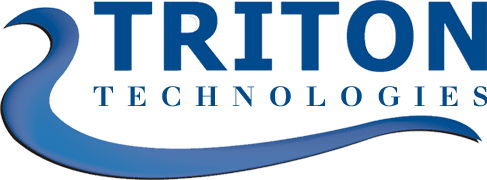In recent years, the healthcare sector has become a prime target for cybercriminals. The recent cyberattack on McLaren Health Care highlights the escalating cybersecurity threats in healthcare and underscores the need for robust defenses against such intrusions. This article examines rising cyberattacks in healthcare with the McLaren Health Care breach as a case study and provides lessons for improving cybersecurity.
The Rising Trend of Cyberattacks in Healthcare
Healthcare organizations are increasingly targeted by cybercriminals due to the high value of Protected Health Information (PHI) and the sensitive nature of medical data. Unlike other sectors, healthcare not only holds personal data that can be exploited for financial gain but also contains medical histories that can be used for blackmail or identity theft.
The McLaren Health Care cyberattack, announced on August 7, 2024, exemplifies this troubling trend. As of the announcement, the organization was unable to confirm whether patient or employee information had been compromised. This uncertainty about data breaches is a common challenge in the aftermath of a cyberattack and highlights the need for effective incident response strategies.
Why Healthcare Is a Prime Target
Several factors contribute to the healthcare sector’s vulnerability to cyberattacks:
Valuable Data
Healthcare data is extremely valuable. PHI can be sold on the dark web or used for identity theft. Additionally, medical records can be used to extort patients, especially if they contain sensitive or embarrassing information.
Complex IT Environments
Healthcare organizations often operate with complex IT environments, including outdated systems, interconnected devices, and multiple software applications. This complexity can create vulnerabilities that cybercriminals exploit.
Regulatory Pressure
Healthcare organizations are under constant pressure to comply with regulations such as the Health Insurance Portability and Accountability Act (HIPAA) in the U.S. This regulatory pressure can sometimes lead to inadequate security measures, especially in smaller practices or organizations with limited resources.
Operational Disruption
Cyberattacks can disrupt critical operations, including patient care, which adds another layer of urgency for attackers. The time-sensitive nature of healthcare services makes these organizations more likely to pay ransoms or agree to other demands.
Explore our Managed Service Offerings
Worcester’s Top Managed Service Provider
Lessons from the McLaren Health Care Cyberattack
The McLaren Health Care cyberattack provides several key lessons for the healthcare industry:
Enhance Incident Response Capabilities
One of the most critical takeaways from the McLaren Health Care breach is the importance of having a well-defined incident response plan. An effective incident response plan includes:
- Preparedness: Regularly updated and tested response plans.
- Detection: Advanced monitoring systems to quickly identify suspicious activities.
- Response: Clear protocols for containing the breach, communicating with affected parties, and mitigating damage.
- Recovery: Steps for restoring systems and operations, and ensuring that vulnerabilities are addressed to prevent future attacks.
Healthcare organizations must invest in training their staff on recognizing potential threats and following response protocols. Additionally, having a dedicated cybersecurity team or partnering with a managed security service provider can enhance the organization’s ability to respond to cyber threats effectively.
Invest in Robust Cybersecurity Measures
Given the increasing sophistication of cyber attacks in healthcare, investing in advanced cybersecurity technologies is essential. Key measures include:
- Encryption: Encrypting sensitive data both in transit and at rest to protect it from unauthorized access.
- Multi-Factor Authentication (MFA): Implementing MFA to strengthen access controls and reduce the risk of unauthorized access to systems.
- Regular Updates and Patches: Ensuring that all software and systems are up-to-date with the latest security patches to close vulnerabilities.
- Network Segmentation: Segmenting networks to limit the spread of malware and protect critical systems.
By adopting these cybersecurity best practices, healthcare organizations can reduce their risk of falling victim to cyberattacks.
Strengthen Data Backup and Recovery
Regular data backups and a robust recovery plan are vital components of a cybersecurity strategy. In the event of a cyberattack, having recent backups can significantly reduce downtime and data loss. Key practices include:
- Regular Backups: Conducting frequent backups of critical data and ensuring that backups are stored securely.
- Testing Recovery Procedures: Regularly testing recovery procedures to ensure that data can be restored quickly and accurately.
- Off-Site Storage: Keeping backups in a secure off-site location to protect against physical and cyber threats.
These measures can help ensure that an organization can quickly recover from a cyberattack and continue operations with minimal disruption.
Educate and Train Employees
Human error is often a factor in cyberattacks, making employee education and training crucial. Organizations should:
- Conduct Regular Training: Provide ongoing training to staff on recognizing phishing emails, using strong passwords, and following best practices for data security.
- Simulate Attacks: Use simulated phishing attacks and other exercises to test and reinforce employees’ awareness of cybersecurity threats.
- Promote a Security Culture: Foster a culture of cybersecurity awareness where employees understand the importance of protecting sensitive information and are encouraged to report suspicious activities.
Educated and vigilant employees are a key line of defense against cyber threats.
Monitor and Assess Risks Continuously
Continuous monitoring and risk assessment are essential for staying ahead of potential cyber threats. Healthcare organizations should:
- Implement Continuous Monitoring: Use advanced threat detection systems to monitor network activity and detect anomalies in real time.
- Conduct Regular Risk Assessments: Regularly evaluate the organization’s cybersecurity posture to identify and address potential vulnerabilities.
- Stay Informed: Keep up with the latest cybersecurity trends and threat intelligence to understand emerging threats and adapt security measures accordingly.
Discover our IT Solutions for Your Industry
Worcester’s Top Managed Service Provider
How Triton Technologies Can Help
As cyber threats in healthcare continue to evolve, partnering with a trusted managed services provider like Triton Technologies can be a game-changer for healthcare organizations seeking to bolster their cybersecurity posture. We offer comprehensive managed services and industry-specific IT solutions designed to address the unique challenges faced by healthcare organizations.
1. Managed IT Services
Triton Technologies provides end-to-end managed IT services that ensure your healthcare organization’s IT infrastructure is secure, efficient, and up-to-date. Our services include proactive monitoring, threat detection, and incident response to quickly address and mitigate any security issues.
2. Industry-Specific IT Solutions
Understanding the specific needs of the healthcare sector, Triton Technologies offers customized healthcare IT solutions that comply with regulations like HIPAA and address the unique cybersecurity threats in healthcare. Our solutions include:
- Advanced Security Measures: Implementing robust encryption, multi-factor authentication, and network segmentation to protect sensitive patient data.
- Data Backup and Recovery: Ensuring regular, secure backups and effective recovery plans to minimize downtime and data loss in the event of a cyberattack.
- Employee Training: Providing cybersecurity training and awareness programs to educate your staff on best practices and how to recognize and respond to threats. Learn more about our Security Awareness Training.
3. IT Compliance
Ensuring compliance with regulations such as HIPAA is crucial for healthcare organizations. Triton Technologies offers comprehensive IT compliance services that help you navigate complex regulatory requirements and maintain adherence to industry standards. Our compliance services include:
- Regulatory Assessment: Evaluating your current systems and processes to identify compliance gaps and areas for improvement.
- Policy Development: Assisting in the creation and implementation of policies and procedures that meet regulatory requirements.
- Audit Support: Providing support for internal and external audits to ensure ongoing compliance and readiness.
4. Continuous Monitoring and Risk Assessment
Our continuous monitoring services keep a vigilant eye on your network, identifying and responding to potential threats in real-time. Regular risk assessments help us stay ahead of emerging threats and ensure your cybersecurity measures remain effective and up-to-date.
By leveraging Triton Technologies’ managed services and industry-specific IT solutions, healthcare organizations can enhance their cybersecurity posture, protect patient data, and ensure a swift response to any cyber threats.
The cyberattack on McLaren Health Care underscores the rising cybersecurity threats in healthcare and the urgent need for improved defenses. By learning from such incidents and implementing robust cybersecurity measures, healthcare organizations can better protect themselves against the growing risk of cyberattacks. Enhancing incident response capabilities, investing in advanced security technologies, strengthening data backup and recovery, educating employees, and continuously monitoring and assessing risks are critical steps in safeguarding healthcare data and maintaining the trust of patients and stakeholders.
Partnering with a managed services provider like Triton Technologies can further enhance your organization’s ability to navigate these challenges effectively. In the face of an ever-evolving threat landscape, staying proactive and prepared is essential to ensuring the security and resilience of healthcare organizations. Contact us today.
Discover Our Compliance Management Solutions
Worcester’s Leading Provider of Compliance Services



